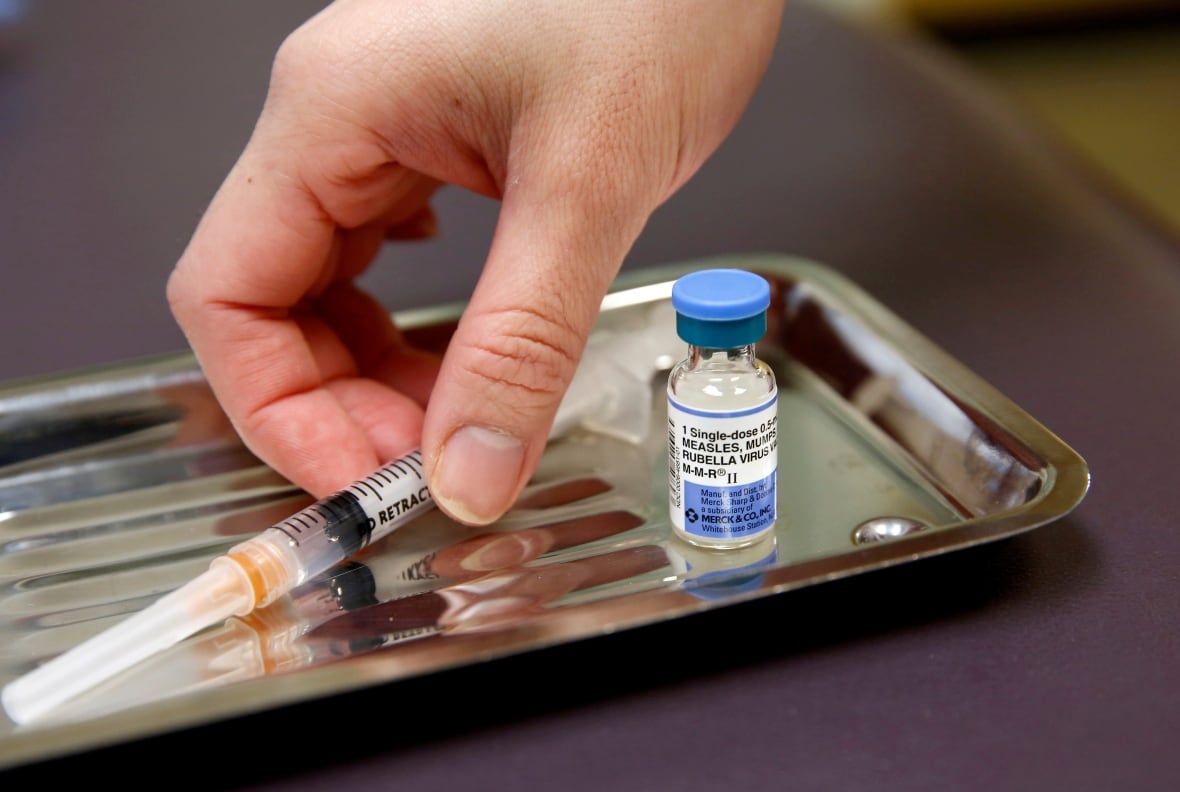
A measles outbreak in New Brunswick that resulted in a cluster of cases in Ontario and helped push Canada’s case count to the highest it’s been in a decade, is over, the Department of Health announced Tuesday.
The outbreak, which was declared on Nov. 1, saw a total of 50 cases of the highly infectious respiratory disease confirmed in Zone 3, which includes Fredericton and the upper Saint John River valley.
More than 40 of them were under 19, health officials have said. Three required hospitalization, and “several others” required assessment in emergency.
It was the province’s largest outbreak on record in “several decades.”
All of the cases were linked to an initial travel-related case reported on Oct. 24, with the last case confirmed on Nov. 26.
An additional 266 people who were potentially exposed were contacted by health officials through contact tracing and offered advice, according to a news release.
“This situation is a good reminder that diseases that are happening elsewhere in the world can quickly arrive on our doorstep, and of the importance of being up to date on our immunizations to protect ourselves from these vaccine-preventable infections,” Dr. Yves Léger, the province’s acting chief medical officer of health, said in a statement.
Of the 50 people infected, 90 per cent were unvaccinated and the remaining 10 per cent could not provide evidence of vaccination or immunity, Department of Health spokesperson Tara Chislett previously told CBC News.
As of Jan. 2, 239 New Brunswickers were immunized at 30 special vaccination clinics.
Vaccination urged
While the outbreak is over, Dr. Mark McKelvie, regional medical officer of health, encourages New Brunswickers to continue to stay up to date on their immunizations. Vaccination is the most effective way to protect yourself and your loved ones, he said.
Most people are protected with two doses of the the measles, mumps and rubella, or MMR, vaccine.

In New Brunswick, the vaccine is part of the routine publicly funded schedule for babies aged 12 and 18 months.
It’s also available free for children who have not received two doses and for adults born in 1970 or later.
Contagious before symptoms
People at risk can be infected with the measles virus within as little as 15 minutes of exposure, according to the Department of Health.
The virus is transmitted through the air or by direct contact with nasal or throat secretions of an infected person.
It can take up to three weeks for initial symptoms, such as fever, cough, sore and/or red eyes, runny nose or tiny white spots in the mouth, to appear, plus another three to seven days for the tell-tale red blotchy rash to develop on the face, body, arms and legs, so people can be contagious without knowing it and easily spread the virus to others.
Measles can be more severe in adults and infants and can lead to complications, including pneumonia and sometimes swelling of the brain, which can cause seizures, deafness, brain damage or even death.
Ontario spike linked to N.B. exposure
In Ontario, a cluster of measles cases linked to an exposure in New Brunswick has grown to 37 since October, according to an epidemiological summary from Public Health Ontario, dated Dec. 19. This includes 11 confirmed cases and 26 “probable.”
Of these, 28 have been children and youth, one of whom required hospitalization.
All but two cases were unimmunized, the report says.
In total, Ontario reported 63 cases of measles (37 confirmed and 26 probable) in 2024.
Across Canada, 141 measles cases, have been reported by six jurisdictions, as of Dec. 14, including the death of child under five in Hamilton, according to the Public Health Agency of Canada. New Brunswick accounts for a third of these.
The last time the country had a higher number of cases was in 2015, when 196 cases were confirmed, national data shows.
New Brunswick’s last measles outbreak was in 2019, when Zone 2, the Saint John region, saw a total of 12 cases over two months.



